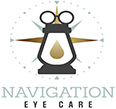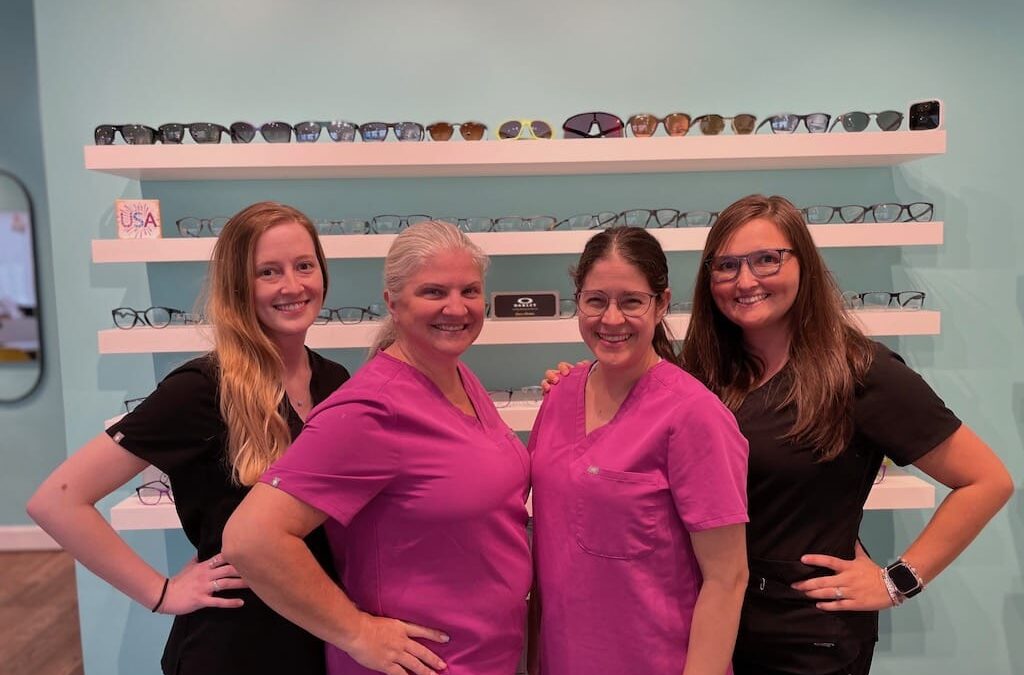The Digital Dilemma: How Screens Affect Dry Eye Symptoms
In our increasingly digital world, screens have become an integral part of our daily lives. Whether it’s for work, entertainment, or staying connected with loved ones, we spend hours each day staring at screens. While this technological advancement has brought convenience and connectivity, it has also given rise to a common and often uncomfortable condition: dry eyes. We will explore the impact of screens on dry eye symptoms and how at Navigation Eye Care and their very own Optometrist Chesapeake VA can help you find the relief that you need.
The Screen-Centric Lifestyle
From smartphones and tablets to computers and televisions, screens are omnipresent. While they have revolutionized how we work, learn, and entertain ourselves, they come with a downside—digital eye strain, also known as computer vision syndrome (CVS). Dry eye symptoms are a common component of CVS.
Understanding Dry Eye Syndrome
Dry eye syndrome occurs when the eyes don’t produce enough tears or when the tears evaporate too quickly. Common symptoms include:
- Dryness: A gritty or sandy sensation in the eyes.
- Redness: Bloodshot eyes due to irritation.
- Burning: A burning or stinging sensation.
- Blurry Vision: Difficulty focusing on objects.
- Excessive Tearing: Paradoxically, dry eyes can lead to excessive tearing as the eyes overcompensate for the lack of moisture.
The Impact of Screens on Dry Eyes
- Reduced Blink Rate: When we focus on screens, we tend to blink less frequently. Blinking is essential for spreading a thin layer of tears (the tear film) across the surface of the eye, keeping it moist and comfortable.
- Increased Screen Time: Extended screen time further reduces the blink rate, exacerbating dry eye symptoms.
- Decreased Blink Completeness: Even when we do blink while staring at screens, the blinks are often incomplete, which means the tear film doesn’t distribute properly, leading to dryness.
- Reduced Tear Production: Prolonged screen exposure can lead to reduced tear production over time.
- Blue Light Exposure: Screens emit blue light, which can contribute to digital eye strain and disrupt sleep patterns.
Preventing and Managing Dry Eye Symptoms
- Follow the 20-20-20 Rule: Every 20 minutes, take a 20-second break, and focus on something at least 20 feet away. This practice can reduce eye strain.
- Blink Regularly: Make a conscious effort to blink more often when using screens to help maintain tear film.
- Use Artificial Tears: Over-the-counter artificial tears can provide temporary relief from dryness.
- Adjust Screen Settings: Reduce screen brightness and use blue light filters to minimize eye strain.
- Stay Hydrated: Drinking enough water can help maintain overall body hydration, including tear production.
Consulting with Navigation Eye Care’ Optometrist Chesapeake VA
If you’re experiencing persistent dry eye symptoms related to screen use, it’s crucial to consult with Navigation Eye Care. The team can perform a comprehensive eye examination to assess the extent of your dry eye condition and recommend tailored treatments, which may include prescription eye drops or other therapies.
Finding a Balance
Screens are here to stay, and while they bring immense benefits, they can also contribute to dry eye symptoms. By adopting healthy screen habits, seeking relief when needed, and consulting with Navigation Eye Care’s Optometrist Chesapeake VA, you can strike a balance between the digital world and your eye health, ensuring that you enjoy clear, comfortable vision.
A Breath of Relief: Exploring the Connection Between Dry Eyes and Allergies
Allergies can be a real nuisance, affecting not only your nose and throat but also your eyes. If you’ve ever experienced itchy, red, and watery eyes during allergy season, you’re not alone. There’s a strong connection between dry eyes and allergies, and understanding this link can help you find relief. Let’s dive into the relationship between these two conditions and how Navigation Eye Care’s Optometrist Chesapeake VA can help you manage them effectively. can
The Allergy-Dry Eye Connection
Allergic Conjunctivitis: Allergies trigger a condition called allergic conjunctivitis, which is the inflammation of the conjunctiva—the clear tissue covering the white part of your eye. This inflammation can lead to a range of uncomfortable symptoms, including:
- Itchy eyes
- Redness
- Watery eyes
- Burning or stinging sensation
- Sensitivity to light
Allergic conjunctivitis can contribute to dry eye symptoms due to the increased evaporation of tears caused by excessive tearing (a paradoxical response to dry eyes).
Contributing Factors
Several factors contribute to the connection between dry eyes and allergies:
- Eye Rubbing: Allergy-related itching often leads to frequent eye rubbing, which can disrupt the tear film and exacerbate dryness.
- Medications: Some allergy medications, such as antihistamines, can have a drying effect on mucous membranes, including the eyes.
- Seasonal Changes: Allergies tend to worsen during certain seasons, such as spring and fall when pollen levels are high. These seasons can coincide with drier weather, compounding the dry eye problem.
- Indoor Allergens: Allergens like dust mites and pet dander can persist indoors year-round, contributing to chronic allergies and dry eye symptoms.
Managing Allergies and Dry Eyes
If you’re experiencing the uncomfortable combination of dry eyes and allergies, here are some strategies to help you find relief:
- Consult an Optometrist: At Navigation Eye Care our Optometrist Chesapeake VA can perform a comprehensive eye examination to assess the extent of your dry eye and allergic symptoms. She can recommend personalized treatments and strategies.
- Allergy Management: Work with your allergist to identify and manage your specific allergies. Allergy medications and lifestyle changes can help control allergic reactions.
- Eye Drops: Artificial tears or lubricating eye drops can provide relief from dry eye symptoms. These can be used as needed to keep your eyes moist.
- Avoid Eye Rubbing: As tempting as it may be, try to avoid rubbing your eyes, as this can exacerbate dryness and worsen allergic symptoms.
- Environmental Control: Minimize exposure to allergens by using air purifiers, keeping windows closed during high pollen seasons, and maintaining a clean and dust-free home.
A Breath of Relief for Your Eyes
The connection between dry eyes and allergies can be challenging to navigate, but with the right strategies and guidance from Navigation Eye Care’s Optometrist Chesapeake VA and her highly qualified team, you can find relief. Managing both conditions effectively can help you enjoy clear, comfortable vision, free from the discomfort of itchy, watery eyes. Don’t let allergies and dry eyes hold you back; seek the support you need for a breath of relief.

